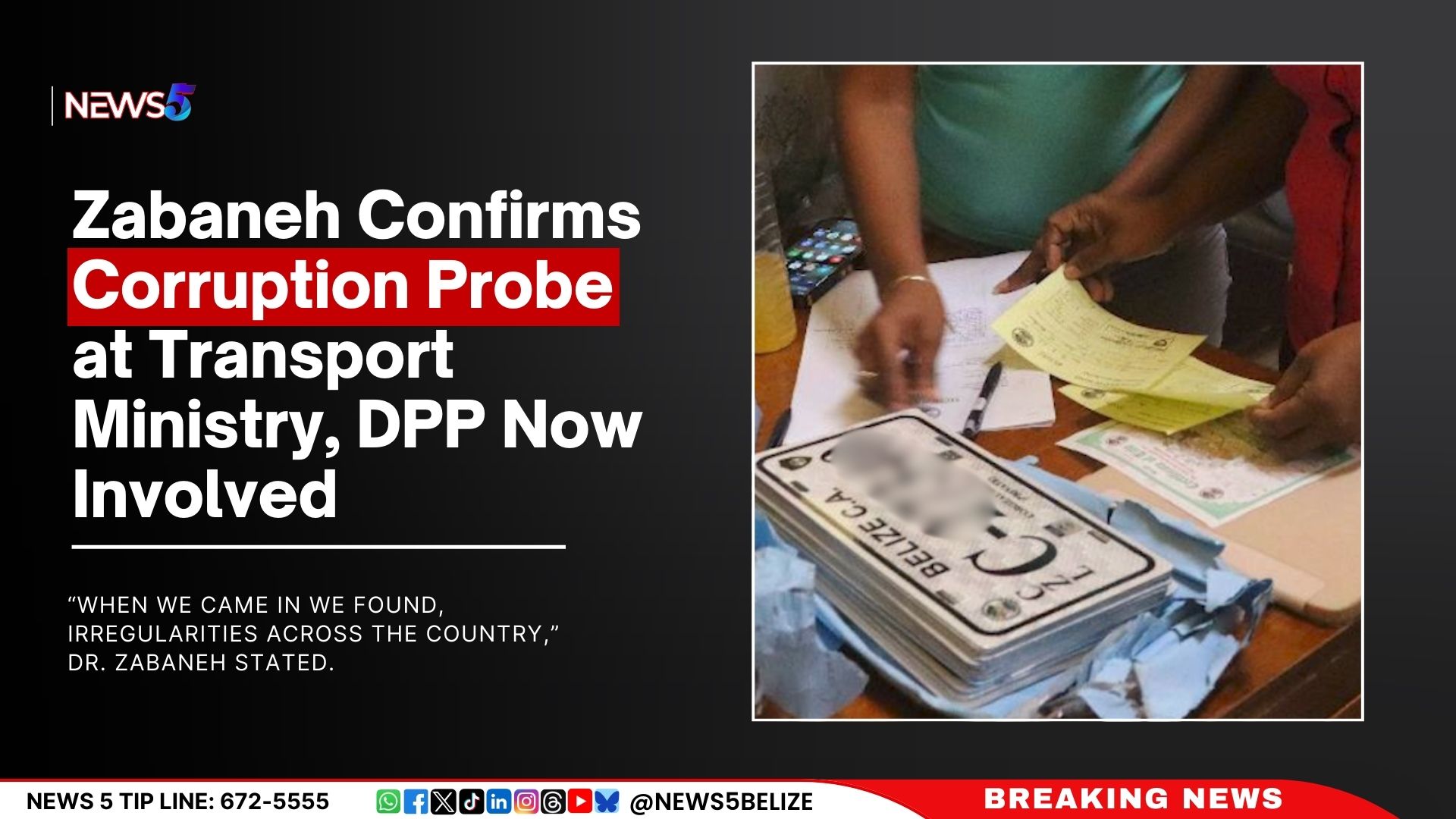A sweeping investigation is now underway at Ministry of Transport, with potentially serious consequences for how the department has been managed over the past four years. Minister of Transport, Dr. Louis Zabaneh, has confirmed to News Five that a file detailing alleged irregularities has already been submitted to the Director of Public Prosecutions (DPP) for review.
Recently Public Service Union President Dean Flowers challenged both Minister Zabaneh and Transport CEO Clyde Williams to take immediate action to address claims of corruption within the ministry. Minister Zabaneh said that the investigation began two months ago.
“When we came in we found, irregularities across the country,” Dr. Zabaneh stated. “And in fact, we have a case with the DPP… we’re investigating.”
While Dr. Zabaneh declined to disclose specific details of the case due to its ongoing nature, he saidthat the ministry is taking the matter seriously. “We feel that until we are able to, in a sense make an example of rogue employees who are there stealing the resources of our people… maybe until then, it continues business as usual,” he said. “Hopefully at that point people start to get the message that we’re serious.”
According to the minister, the issue appears to involve deep-rooted collusion within various levels of the ministry. “What we’re seeing is that there’s collusion between various levels,” he explained. “When you don’t have a system in place where you have clear terms of reference for people, who is responsible for what, then there’s always a setting where people can point fingers and say, it wasn’t me. It was that one. It was the other one.”
We’ll keep following this story.
This story was updated at 3:38 p.m.
